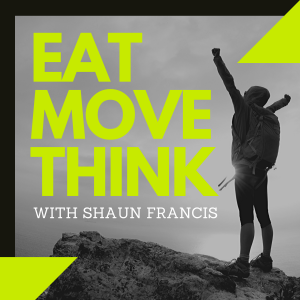Miscellaneous
As the author of the recent New York Times bestseller Hunt, Gather, Parent, Michaeleen Doucleff was already examining the culture and practice of mothering when the pandemic hit. Then everything changed for us all. Here, Medcan’s Dr. Daiva Barnicke, mother of two young children, explores Doucleff’s story as well as the pandemic’s impact on motherhood in a frank conversation that could have therapeutic benefits for struggling moms. https://www.eatmovethinkpodcast.com/podcast/ep-63-motherhood LINKS Michaeleen Doucleff is on Twitter @foodiescience. Doucleff’s book is Hunt, Gather, Parent: What Ancient Cultures Can Teach Us About the Lost Art of Raising Happy, Helpful Little Humans. Here’s the New York Times book review. Buy it at Indigo and Amazon. “There’s a Better Way to Parent: Less Yelling, Less Praise”: An interview with Doucleff in The Atlantic. The NPR blog to which Doucleff contributes is called Goats and Soda. Medcan provides a Child and Youth Assessment designed to empower children to eat better, move better and think better. Learn more. INSIGHTS The pandemic meant the closing of the preschool that Doucleff’s daughter, Rosy, attended. So Doucleff went from parenting her daughter for three or four hours a day, to up around 14 hours a day. Meanwhile, she also had the deadline for Hunt, Gather, Parent to meet. So Doucleff was forced into a position where she had to take the book’s advice, particularly the bit that suggests that North American parents should provide their children with more autonomy, and interfere less in their lives. “I really started to put those ideas into practice throughout the day, and I have to tell you, it saved us,” Doucleff says. (4:50) Doucleff began thinking about her parenting in 2014, when National Public Radio sent her to Monrovia, Liberia, in Africa, to cover the peak of the Ebola Outbreak. “I saw these parents that were in this incredibly stressful situation,” Doucleff recalls, “and yet they were very calm and composed.” She was struck by the way parents in Liberia were being faced with something that was very harsh and hard, and yet the moms and dads there were able to keep their composure with their children. “I just started to think, maybe there’s a different way of doing things, that is more productive,” Doucleff says. (5:50) Doucleff studied parenting norms among the Mayan people on the Yucatan peninsula of Africa. She observed that moms among the Maya were far more likely to get their children involved in household work. As a result, the children were more likely to demonstrate the quality of acomedido — the skill of paying attention and then acting in a helpful way. For example, while she was in one Maya mother’s home, Doucleff saw a 12 year old walk into a kitchen and begin doing the dishes, without being nagged or even asked. She believes it’s possible to develop acomedido at any age, because Doucleff realized that both she and her husband needed to develop acomedido as well. (14:40) Child-centred activities are something that Doucleff believes harm a child’s ability to develop acomedido. Such events as four-year-old birthday parties, kiddie museums, trips to the zoo — things parents do only for their children, and never would do on their own — “these things erode a child’s motivation to help,” Doucleff says. “They teach a child to learn that they are special, that their role in the family is to do these special activities.” Doucleff dispensed with all child-centred activities, and instead started to go about her life as she would normally, as an adult. “Just stop doing things you don’t want to do,” she says. The idea is that life revolves around the adults in the family, rather than the family revolving around the children. (18:00) We often think children need to be entertained, and that it’s the parents’ duty to occupy children’s time. To keep them busy in some way. “No other culture in the world believes this,” says Doucleff. “And this is definitely not the way children evolved.” Get rid of that mindset, Doucleff says. “That’s doing them a disservice… A lot of life is boring, and hard work. And being able to occupy yourself, but also take initiative — that’s what we’re taking away from them when we constantly organize their schedules.” (20:15) Power struggles between her daughter and Doucleff were an ongoing problem, and made Doucleff angry with her daughter. But then Doucleff researched parenting norms in Iqaluit. “Kids are just these irrational, illogical beings that don’t have emotional regulation, and don’t have social skills,” the Inuit elders told her. “It’s the job of the parent to show [kids] proper behaviour.” Seeing the parent-child relationship in that light helped Doucleff to curtail her anger with her daughter, and be more successful at modelling appropriate behaviour. (27:00) In the US and Canada, one psychologist told Doucleff, parents teach kids to figure out what they want in life and go get it, which has its benefits. But Doucleff believes the single-minded devotion to goal attainment is done at the expense of teaching children to be helpful, and cooperative, and good family members. “And that's really what we needed during the pandemic, right?” Doucleff asks. “Kids to be working on the team with their parents… Moms have way too much on their shoulders. It’s time that the kids give to the mom, and help the mom. And in that process, the child learns all these skills, both physically how to do things, but also emotionally how to connect and bond with their parent in a way that they hadn't before.” (30:55)

